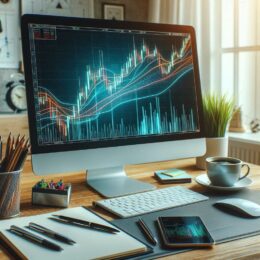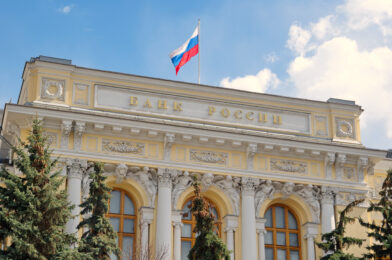A Short History of Volatile Markets
There’s been no escaping market volatility in 2020. Global events have the power to cause huge swings across the financial markets, and this year has had its fair share of newsworthy events. From the Coronavirus pandemic wreaking havoc in global stock markets, to growing political tensions causing price fluctuations in the Foreign Exchange markets, all traders alike will have experienced the effects of market volatility on their trades in the past few months.
But although the current waves of volatility can cause uncertainty among traders, one should remember that historically, volatile markets have allowed traders to make huge profits. In fact, there have been several significant volatility spikes across financial markets in the past which have taught us important lessons in trading. In this article, we will take a look at three prime examples:
1. Black Monday – 1987
Copy link to sectionThe October 19th, 1987 Stock Market Crash in the United States has gone down in history as ‘Black Monday’. The event was blamed largely on ‘Program Trading’, and has been described as the first stock market crash led by technology and financial engineering. However, the sharp fall in the stock prices had been building up for years, resulting in a massive volatility spike.
In the weeks before the spike, the SPX showed signs of increasing volatility, declining from a high by 16%. Following the Black Monday market crash, the financial markets returned to their usual levels of volatility by March 1988.
Currency Trader Andy Kreiger executed one of the most famous trades in history following the Black Monday crash. By watching the currencies that were rallying against the US Dollar, he noticed that some currencies were destined to become overvalued. He opened a short position against the New Zealand Dollar – a.k.a. The ‘Kiwi’ – worth hundreds of millions of dollars, and generated millions of dollars in return!
2. The Great Financial Crisis – 2008
Copy link to sectionThe Financial Crisis of 2008 was the largest drop in stock prices and the economy since the Great Depression. Before the crash, irresponsible banking practices were slowly but surely leading up to a blow-up of market volatility. As many investors saw the value of their portfolios decrease significantly, they sold more of their securities out of fear of incurring further losses.
While people were selling, others saw this as an opportunity to increase their positions at a lower cost as stocks are generally assumed to increase in value in the long-run.
John Paulson, who earned his fame (and $15 million) by ‘betting’ against the US Housing Market in 2008, swiftly changed gears in anticipation of a market recovery in 2009. He opened positions worth billions of dollars, investing in numerous financial institutions, including Bank of America, Goldman Sachs, Citigroup and JP Morgan Chase. This move earned him huge profits and a reputation as one of the best investors of our time.
3. Brexit Vote – 2016
Copy link to sectionThe Forex Market experienced an increase in volatility in anticipation of the 2016 Brexit Vote. Since then, the value of the British Pound (GBP) has experienced much volatility due to Brexit negotiations, trade deals and UK elections, to name a few.
GBP will likely continue to be impacted by Brexit up until the end of the transition period, ie. 31st December 2020. What the lasting effects on GBP will be highly depends on the ongoing EU-UK Brexit negotiations. Naturally, a messy separation presents a dire outlook on the UK’s economy.
Conclusion:
Copy link to sectionSo far in 2020, market volatility has been dominated by the news surrounding the Covid-19 pandemic, leaving little room for other events to leave an impact. However, the looming expiry date of the Brexit transition period poses further increases in volatility, especially in the Forex Market.
Trading CFDs with high-leverage allows individuals to maximise their profits, even with the slightest price movements. Traders can open long or short positions based on whether they believe the price of an asset will increase or decrease, creating opportunities to profit even during times of market downturn! High-leverage also means that traders can open positions worth more than the funds in their account would allow.
Capitalise on market volatility by trading Forex, Stocks, Indices, Cryptocurrencies and more with leverage of up to 1:500 with EagleFX. Sign up at eaglefx.com today!
More industry news








